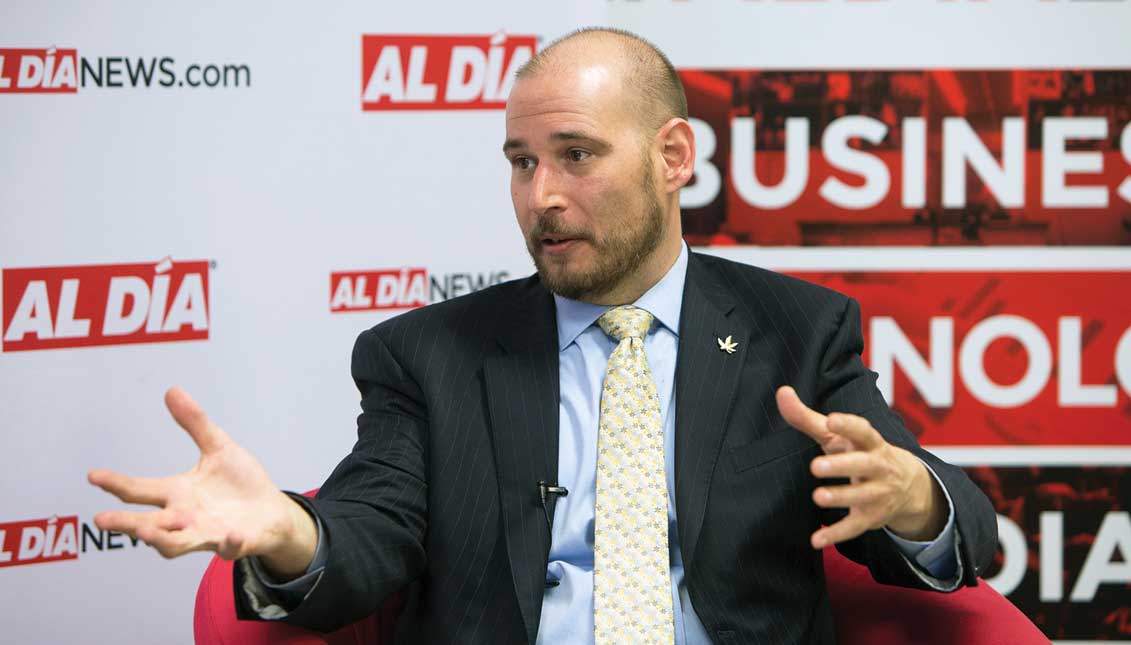
Chris Goldstein: A responsible future for marijuana
As the legal marijuana industry continues to grow, we spoke with cannabis advocate Chris Goldstein about the changing roles of government and the business…
At times, the complete legalization of marijuana in the United States seems so close you can almost smell it.
More than half of the states in the union have legalized cannabis in some form, including eight that have approved marijuana for recreational use. Meanwhile, Senate Minority Leader Chuck Schumer announced on April 19 his plan to introduce legislation that would decriminalize pot across the nation, indicating a major shift in opinion among traditional Democratic leadership on moving toward full marijuana legalization in the U.S.
Even former Republican Speaker of the House John Boehner, once an unshakable opponent of ending marijuana prohibition, recently announced that he has joined the board of advisers of Acreage Holdings, a marijuana corporation, noting via Twitter that his “thinking on cannabis has evolved.”
For weed enthusiasts, Boehner’s flip may appear on the surface a welcome shift in opinion from a champion of American conservative principles, signaling that the battle for marijuana rights is all but won. However, according to Chris Goldstein—local marijuana advocate, activist, and journalist—the fight is far from over.
“Right now, if you believe in the social justice side of ending marijuana prohibition, you need to speak up louder than ever,” Goldstein said during an interview with AL DÍA on April 17. “When you see guys like John Boehner getting into the marijuana industry, you better get active in politics to make sure these laws turn out right for the people on the ground.”
Goldstein is a former member of the Board of Directors at several chapters of NORML (National Organization for the Reform of Marijuana Laws). As a writer, he is a frequent contributor to Philly.com focusing on cannabis-related issues. He is also a media instructor at Temple University, teaching the course “Marijuana in the News.”
For years, Goldstein has been one of the most vocal proponents of marijuana legalization in the Philadelphia region, assisting in efforts that led to the city decriminalizing possession of a small amount of cannabis in 2014.
These efforts included organizing a series of peaceful protests with other activists near Independence Hall against marijuana prohibition beginning in 2012. During one such protest in August 2013, Goldstein was arrested for possessing less than half a gram of marijuana (a half-smoked joint), resulting in a $3,000 fine, two years of supervised probation, and a lasting criminal record.
As marijuana becomes more accessible legally, Goldstein explained that it’s crucial that this sea change produces certain outcomes. For example, the government should ensure that those criminalized during marijuana prohibition, a disproportionate number of whom are people of color, have their convictions expunged. This stipulation is a key aspect of Sen. Cory Booker’s Marijuana Justice Act, a bill that the senator from New Jersey introduced in Congress last year that aims to legalize marijuana at the federal level.
RELATED CONTENT
It’s not only important for the government to be responsible in managing the future of the marijuana industry, Goldstein explained, but the business sector as well. Marijuana sellers have an obligation to make legal cannabis affordable, especially for those who are seriously ill. Since medical marijuana dispensaries began operating in Pennsylvania this year—selling cannabis in oil forms—affordability has proven to be a major problem.
“These oils are selling for 60 to 144 dollars a gram, which is just outrageously expensive and unaffordable to a lot of patients on a fixed income,” Goldstein said.
Goldstein hopes that Pennsylvania Secretary of Health Rachel Levine’s decision in April to approve an advisory board’s recommendation to allow the sale of cannabis in its dry flower form, which is much less involved to produce than cannabis oil, will lead to less expensive marijuana in the commonwealth.
However, the situation may not unfold that way if neighboring New Jersey is any indicator.
“New Jersey has only allowed flower and it has the most expensive flower in the country - $400 an ounce,” Goldstein said. “Which means that patients in New Jersey haven’t been able to afford flower even though it’s available.”
Compounding the affordability problem, Goldstein said, is that health insurance doesn’t apply to cannabis.
“Medical marijuana patients can’t use health insurance to offset the cost of anything, Goldstein said. “They have to pay for their doctor visit and every product, or even their paraphernalia to use those products, cash out of pocket.”
The changes to Pennsylvania’s marijuana law are expected to go into effect this month.
For our full interview with Goldstein, visit us on Facebook.











LEAVE A COMMENT: